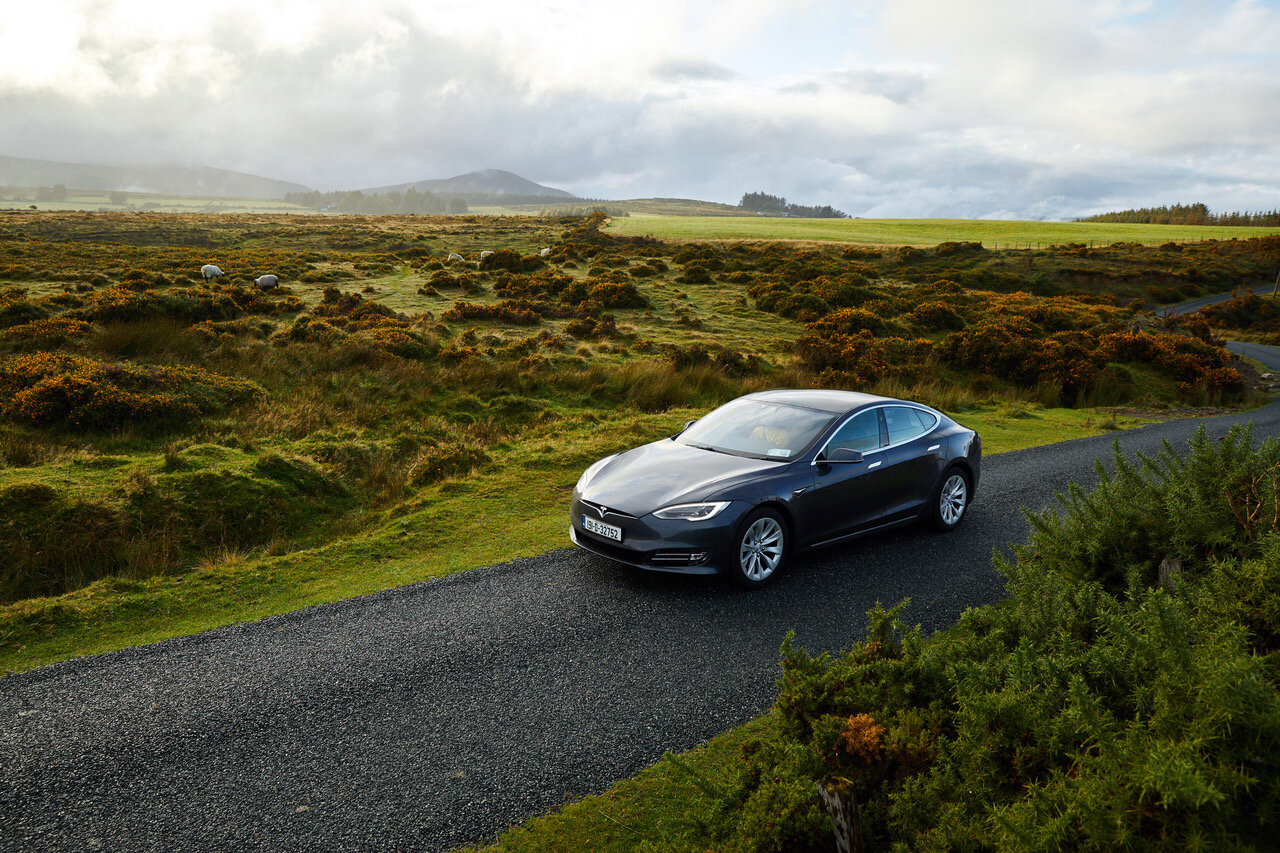
How A VRT Break Could Catalyse EV Adoption In Ireland
With the ambitious emissions targets set by Ireland’s new government, increased electrification will be high on the agenda if the country is to turn the tide on its woeful history of harmful greenhouse gas emissions – currently the third worst in the EU.
Electrification will be essential to break Ireland’s dependence on fossil fuels, allowing a greater percentage of renewable energy to enter the grid to power homes, businesses and vehicles. The latter is particularly important, with the transport sector accounting for 19.5% of all emissions in the Republic – particularly with such reliance on diesel for powering vans and cars.
However, Ireland’s uniquely high VRT and VAT rates are greatly impacting the adoption of electric vehicles and undermining the incentives offered by the SEAI to encourage motorists to switch to zero-emissions vehicles.
Credit: Tesla
Taking the exact same model, with the same trim and colour, the price for the Irish mode inexplicably rises to €48,900 – some €4,334 more than the exact same vehicle in the UK.
This additional cost is also visible in the finance payment options, where the base price starts at €674 per month – coming in at €140 more expensive per month.
This is particularly galling when Ireland offers a considerably larger grant – €5,000 – than the UK does, where the maximum available is just £3,000 (€3,302). This clearly demonstrates the need for the Irish government to shake up the taxation of electric vehicles in order to incentivise adoption and bring down emissions to aid public health and tackle climate change.
A model comparison
In order to demonstrate the impact of Ireland’s excessive taxation on electric vehicles, we only need to look at the cost of the Tesla Model 3 in both Ireland and the UK.
The Model 3 is one of the fastest selling and most popular EVs on the market, owing to its premium performance at an affordable price. However, that affordability is much less so in Ireland than it is elsewhere in Europe.
Comparing the standard version of the vehicle – the Standard Range Plus Model 3 – prices start in the UK from £40,490 (€44,566), with finance starting from £486 per month (€534 per month) with a downpayment of £6,000 (€6,604).
Credit: Tesla
The German model
However, the UK isn’t the only example that we can draw from.
The German government has made electric cars a fundamental part of its stimulus programme in the wake of Covid-19, and as key focus of its strategy to tackle emissions – dedicating €130bn to subsides, developing infrastructure and investing in public transit.
As a result, EVs costing under €40,000 can receive up to €9,000 in subsidies from both the manufacturer and the government, with an additional 3% reduction in VAT on that purchase if it is made before 31st December 2020.
This is the type of leadership that we need to see in Ireland, to not only bring parity between the price of EVs and ICEs, but also to bring Ireland in line with other European nations that see the clear benefits that EV adoption presents for hitting emissions targets, and improving public health.
Sadly the 2020 Programme for Government offers little in the way of meaningful action in how the new government incentivise EV adoption, instead offering vagaries such as “use a range of policy approaches to incentive use of EVs” or “review current motor taxation region” – without any clarification, timelines or detail on how it will enact this.
If the Irish government is serious about meeting its 2030 and 2050 emissions goals, it must start to put its money where its mouth is and tackle the exorbitant price of EVs in Ireland – both in terms of up-front cost, and in scrapping the road tax, which is commonplace across Europe for zero emissions vehicles.
What To Read Next
Why EVs Are Cheaper To Run
EVs are around 42% more efficient than ICEs, making your money go further while costing less in the first place
Averting Clean Energy Poverty Tax
We highlight the urgent need for government financial support avoid an increase in energy poverty, resulting in electric cars and renewable energy being the reserve of those who can afford to adapt – while those who cannot afford it are left behind and taxed as a consequence





